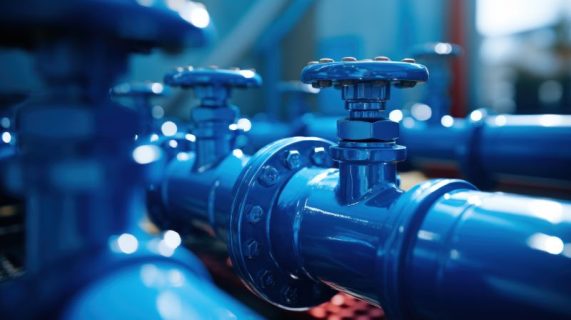Water management is crucial for construction projects to enhance durability and efficiency, prevent soil erosion, reduce water usage, control rainwater, and protect nearby environments.
Understanding the Importance of Water Management in Construction
Effective water management involves controlling and optimizing water use, minimizing waste, preventing pollution, and protecting water resources. Key reasons for prioritizing water management include:
- Environmental Protection: Preventing pollution from reaching nearby rivers, lakes, and natural areas.
- Regulatory Compliance: Adhering to local and national environmental regulations.
- Cost Savings: Reducing water bills and avoiding fines.
- Project Sustainability: Enhancing environmental friendliness and improving project reputation.
Top Tools for Water Management in Construction
Here are some of the top tools and techniques used for water management in construction:
Sediment Control Barriers
Sediment control barriers, such as silt fences and sediment basins, prevent erosion and keep sediment out of water bodies. They capture sediment-laden runoff, allowing cleaner water to flow through. A double diaphragm pump (AODD) is well-suited for handling solids and debris commonly found in construction site water.
Stormwater Management Systems
Stormwater management systems, including retention ponds, infiltration trenches, and swales, control stormwater runoff, reducing flooding and pollution. Advanced systems may feature green roofs and rain gardens.
Water Flow Meters
Water flow meters track water usage on a construction site, helping to identify areas for conservation and potential leaks. By monitoring water use, construction companies can identify ways to reduce consumption and optimize water management practices.
Water Recycling Systems
Water recycling systems capture and treat on-site wastewater for reuse in dust control, equipment washing, and irrigation, significantly reducing overall water consumption.
Permeable Pavements
Permeable pavements, such as porous asphalt, pervious concrete, and interlocking pavers, allow water to soak into the ground, reducing runoff and replenishing groundwater.
Smart Irrigation Systems
Smart irrigation systems use sensors and automation to monitor soil moisture and weather, adjusting water levels to prevent overwatering, saving water, and promoting healthier plant growth.
Wet Weather Shutoff Systems
Wet weather shutoff systems automatically stop water flow to erosion control measures when it rains, preventing washouts and ensuring the effectiveness of these measures.
Construction Site Modeling Software
Construction site modeling software allows for the design and simulation of water management strategies before construction begins. This software can help to identify potential problems and optimize the design of stormwater management systems.
Key Techniques for Effective Water Management in Construction
Here’s a breakdown of the key techniques for effective water management in construction:
Erosion and Sediment Control Plans
These plans prevent soil erosion, control sediment, and manage runoff through methods like temporary seeding, mulching, and installing sediment control devices.
Sustainable Site Design
Sustainable site design reduces hard surfaces, preserves natural vegetation, and designs landscapes to absorb and retain water, reducing runoff and creating durable, attractive environments.
Construction Site Dewatering
Dewatering techniques, such as wellpoint systems, deep wells, and sump pumps, remove excess water to keep construction sites dry and stable, preventing delays and soil issues.
Biodegradable Erosion Control Products
Biodegradable products, like blankets and wattles made from straw, coconut fiber, and jute, temporarily stabilize disturbed soil and decompose naturally without long-term environmental impact.
Stormwater Pollution Prevention Plans (SWPPPs)
SWPPPs detail practices to manage runoff and prevent pollution, ensuring compliance with regulations and maintaining effectiveness through regular inspections and maintenance.
Benefits of Implementing Water Management Solutions
Implementing effective water management solutions in construction offers numerous benefits:
- Environmental Protection: Construction activities can have a significant impact on the environment, particularly water resources. Water management solutions like erosion control and proper stormwater treatment minimize sediment runoff into waterways, protecting aquatic life and preventing habitat degradation. Additionally, water conservation practices reduce the strain on local water supplies, especially in drought-prone regions.
- Regulatory Compliance: Many regions have environmental regulations mandating specific practices to control water use and pollution on construction sites. Implementing water management solutions ensures compliance with these regulations, avoiding fines and potential project delays.
- Cost Savings: Water management isn’t just about the environment, it’s about your bottom line too. Construction companies can save money on water bills by using less water and employing water-saving fixtures. Additionally, proper water treatment avoids the costs associated with discharging contaminated water. Furthermore, effective stormwater management helps prevent flooding, which can damage equipment and materials and delay project timelines, leading to significant cost increases.
- Improved Site Conditions: Water mismanagement on construction sites can lead to a number of problems, including flooding, erosion, and soil instability. These issues can damage equipment and materials, create safety hazards for workers, and delay project completion. Effective water management solutions like stormwater control and erosion control measures help to prevent these problems, creating safer and more efficient construction sites.
- Enhanced Project Reputation: Aside from the construction company’s website, implementing water management solutions demonstrates its commitment to environmental responsibility and sustainable construction practices. This can enhance a company’s reputation, potentially leading to new business opportunities and attracting clients who prioritize sustainability.
Conclusion
Effective water management is essential for sustainable construction. Utilizing tools like sediment control barriers and smart irrigation systems, projects can minimize environmental impact, comply with regulations, and create more resilient environments. As awareness and regulations evolve, innovative water management practices will become increasingly important for successful construction projects.


